Diagnostic Kits
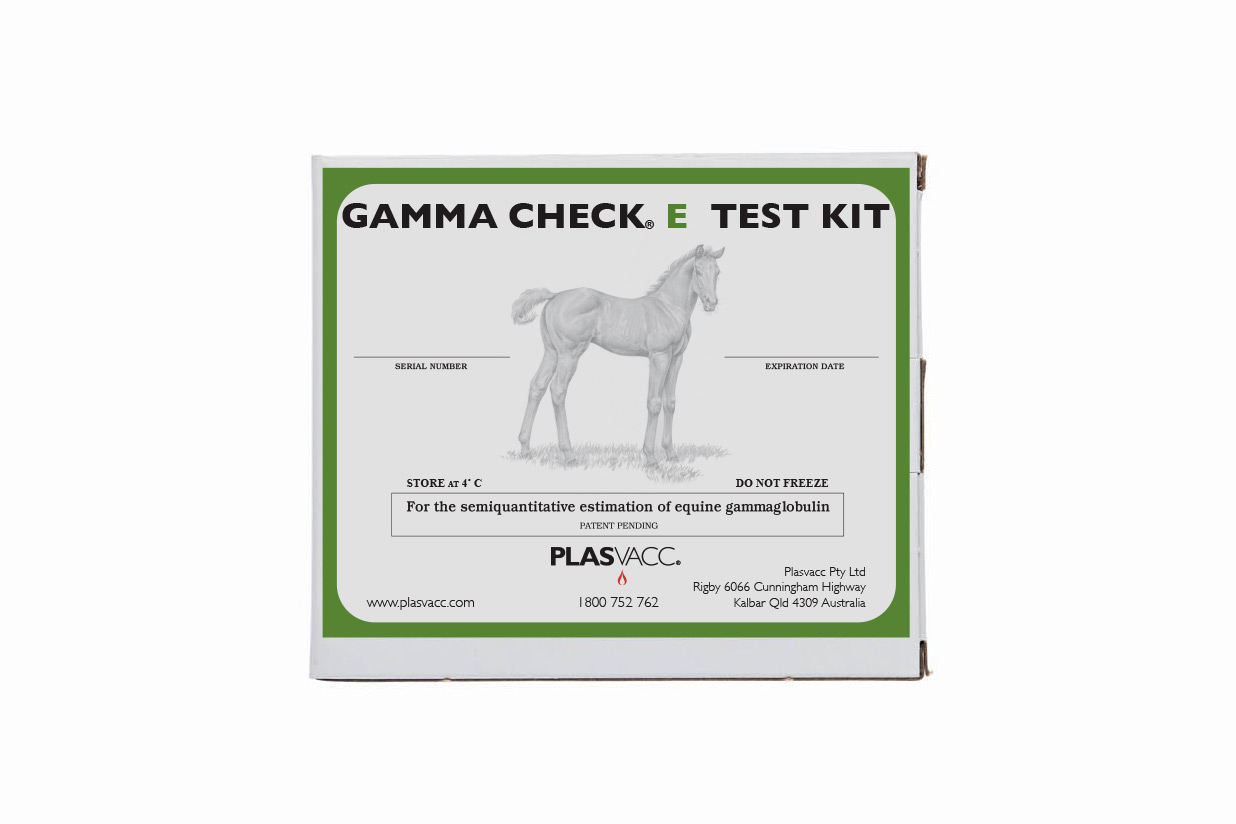
Gamma Check E
The Gamma Check E test is designed to be a rapid screening test for foals, using whole blood or serum. It was developed as a semi-quantitative means of measuring the foal’s IgG level. This test offers results within 5 minutes and can be done “mare side.” No special equipment is needed and the test can be run as early as 8 hours post-foaling allowing time for oral colostrum supplementation. A positive result indicates that the IgG level is greater or equal to 800 mg/dl.
CAUTION: False positive results are occasionally seen when samples are hemolyzed or when a foal has a high fibrinogen level. If the foal is not healthy, we do not recommend using the test. As false negatives do occasionally occur, we do not recommend transfusing a foal with plasma based only on the results of the Gamma Check E test. If the foal tests negative, we suggest repeating the test using the Foal RID test for quantitative results.
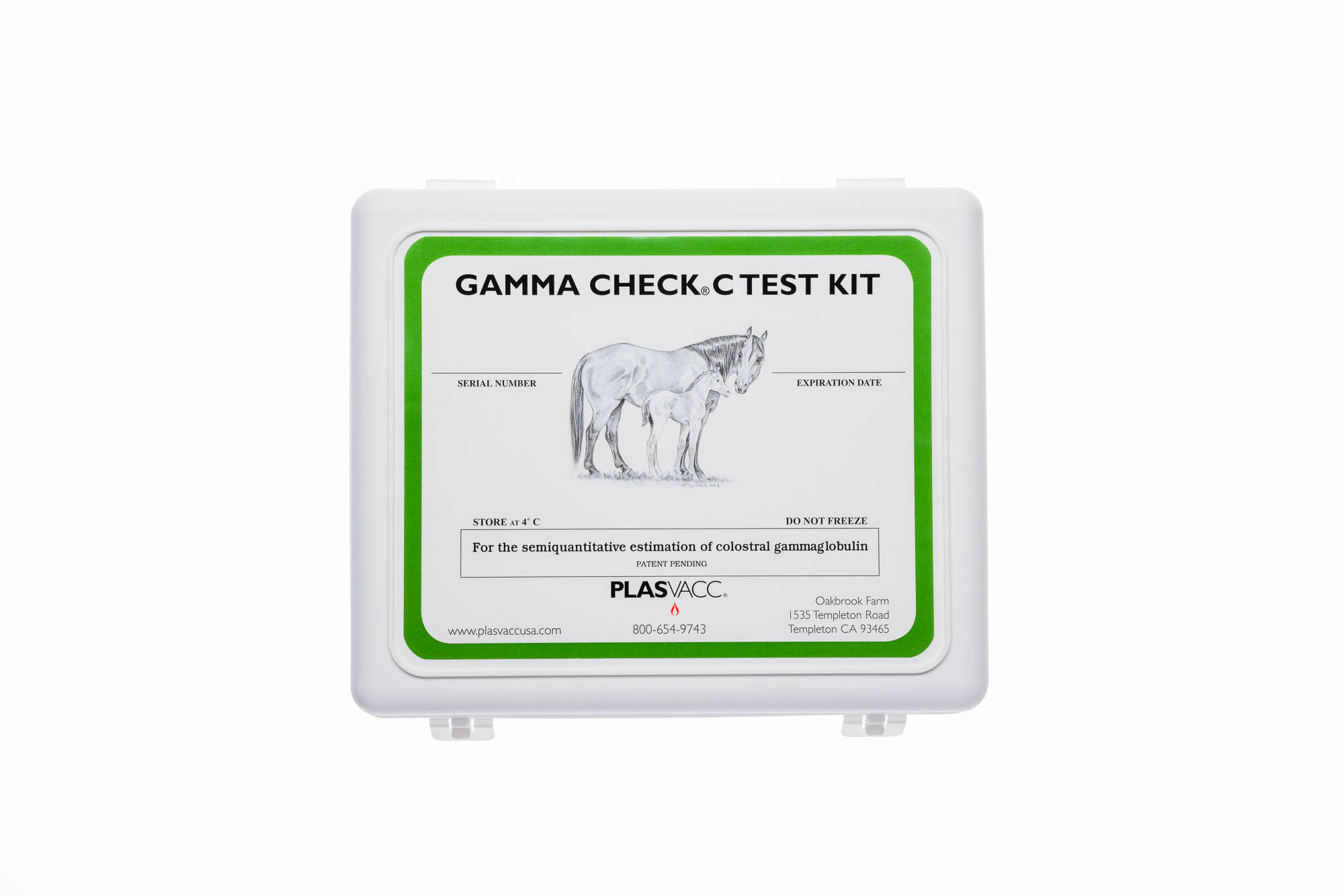
Gamma Check C
The Gamma Check C test screens equine colostrum for “adequate” gamma globulin. In doing so, it provides a simple means of selecting only high quality colostrum for supplementation and banking. This test works on both fresh and thawed colostrum and provides results in 10 minutes with a solid clot indicating an IgG of 3800 mg/dl or greater. The test results also aid in identifying foals at risk for Failure of Passive Transfer, allowing time to implement preventative measures to protect the foal.
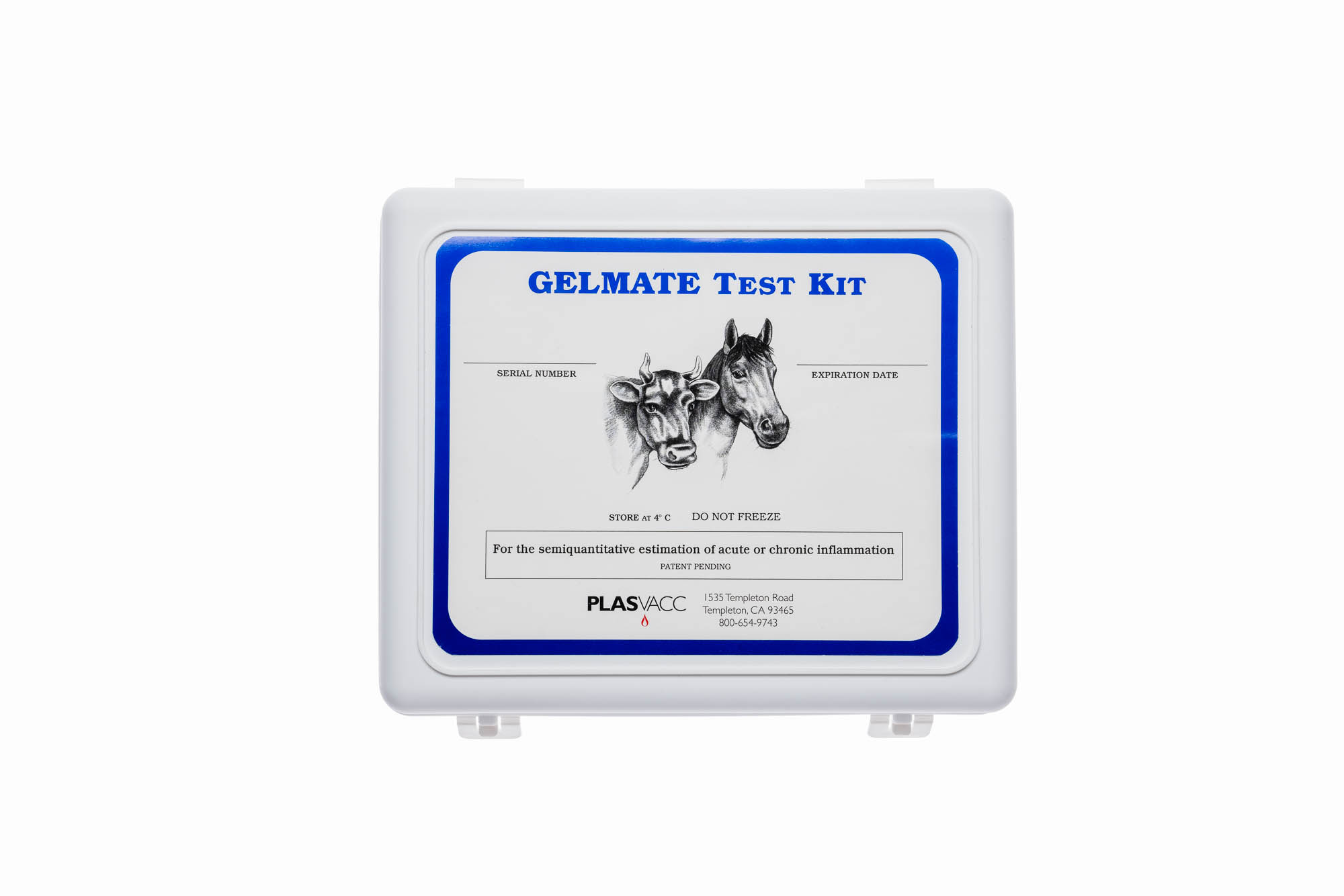
Gelmate Test Kit
The Gelmate Test Kit is for the detection of acute and chronic inflammation in farm animals. The higher the concentration of inflammatory proteins, mainly gammaglobulin and fibrinogen, the quicker the formation of a solid clot when whole blood is added to the reagent. The history of the patient is important as inflammation within a few weeks of testing may result in a positive Gelmate even if the problem has resolved. Examples of conditions causing elevations in inflammatory proteins: pleurisy, internal abscesses, peritonitis, traumatic reticuloperitonitis. False readings can occur with severe anemia (excessive plasma) or severe dehydration (reduced plasma).
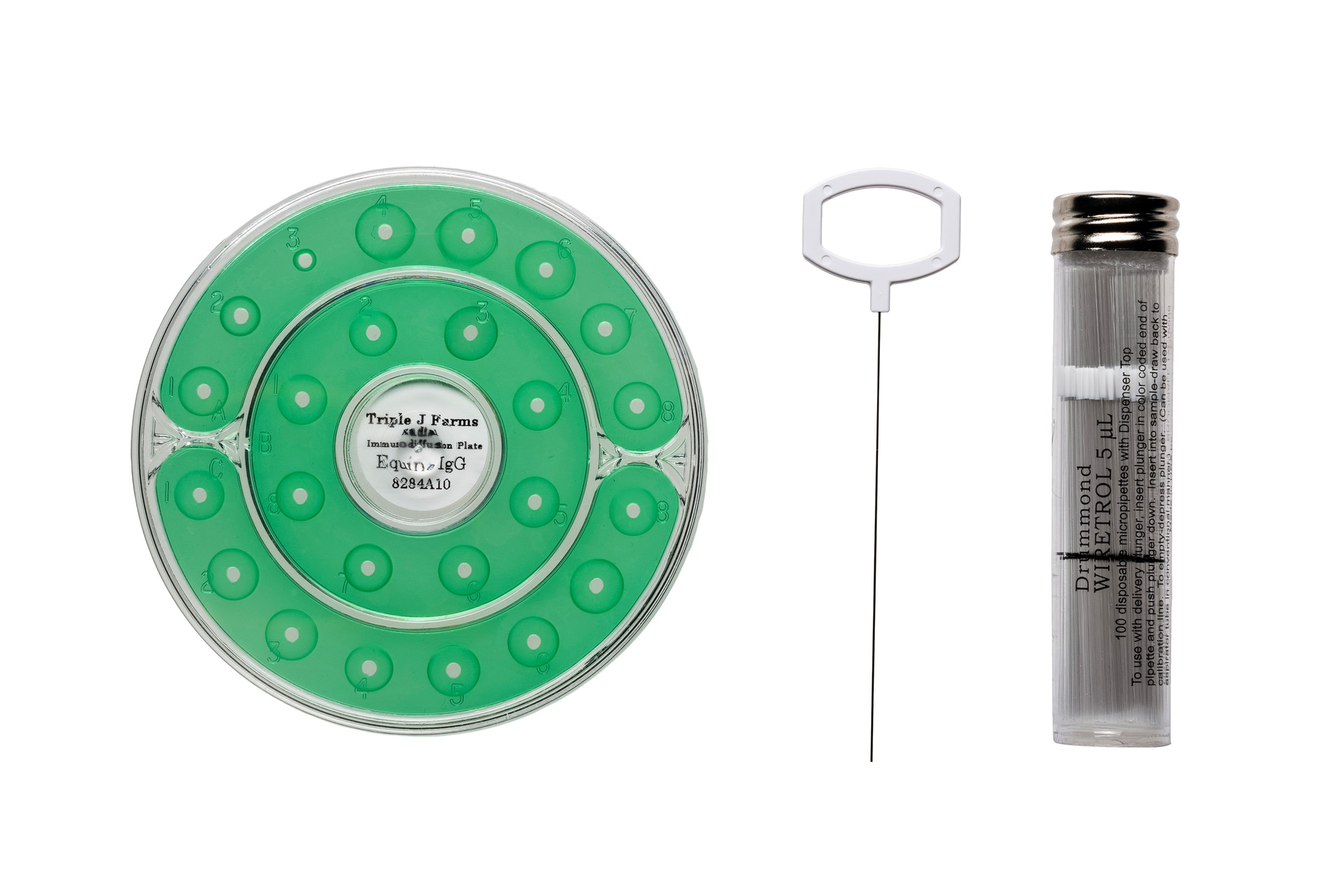
Equine RID
Single radial immunodiffusion tests are an accurate, quantitative means for measuring proteins in serum and other fluids. The Equine RID test has been developed to allow you to measure equine IgG easily, economically, and quickly. Serum is placed into wells in a radial immunodiffusion plate where it diffuses out into agar on the plate. This agar contains antibodies to the IgG in equine serum. After a few hours, because of antibody reacting with the IgG antigen, visible precipitation rings form in the agar. The diameter of these rings is related to the IgG concentration in the serum placed into the well. Using serum reference standards of known IgG concentration, the concentration of the IgG in a test serum can then be easily determined.
Each kit is comprised of: A) a radial immunodiffusion 24-well plate containing agar gel with antiserum to equine IgG dissolved in it, B) three equine reference sera of known IgG levels, C) graph paper with a measuring scale and instructions.
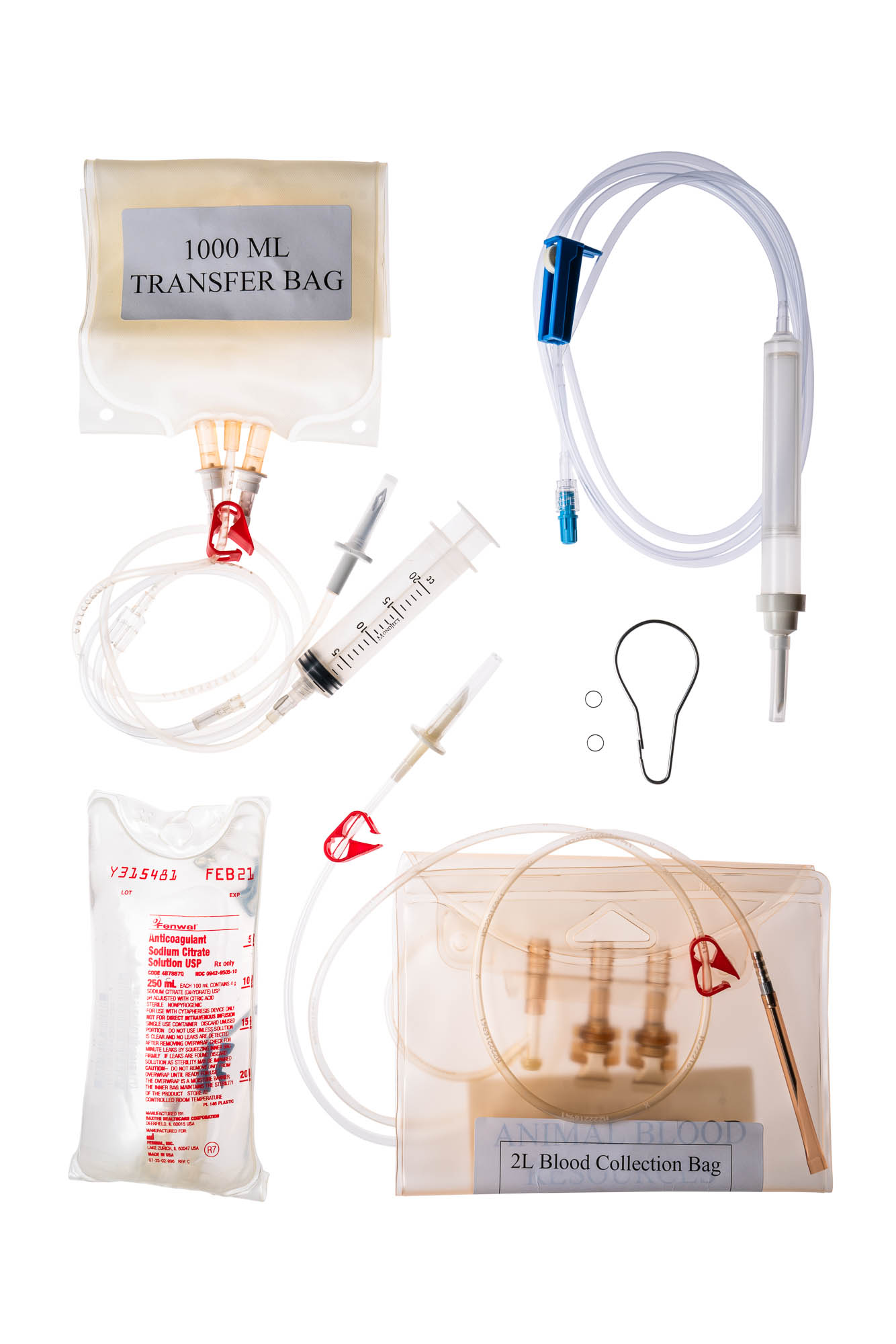
Dynavet Plasma/Blood Collection Sets
The Dynavet kit is a rapid, convenient and inexpensive way to collect whole blood and red blood cells for emergency transfusion. It is also a great way to prepare a liter of plasma in less than 30 minutes of technician time for immediate use or freezing for subsequent administration. The kit is easy to use and the procedure can be carried out by a Veterinarian or a Technician. We can assist you with evaluations of potential donors to ensure you are selecting animals with the most appropriate blood groups. Transfusion reactions can occur with whole blood, plasma or red cells. If you are unfamiliar with blood typing and crossmatching, you are welcome to call our technical department for advice before using these kits.
There are three variations of the kit, depending on the desired end product:
- The preparation of two liters of whole blood for emergency transfusion. (Set.09)
- The preparation of four liters of whole blood for emergency transfusion. (Set.09 4L)
- The preparation of one liter of plasma. (Set.10)
Each kit contains everything you need for the procedure, including anticoagulant, blood collection bag, blood transfer bags, plastic holder for plasma separation, administration set, sealing clips, and a full set of instructions. All you supply is the donor horse.

